Two more UK Tornados to join fight against Islamic State
- Published
PM David Cameron says the Tornados will help in the fight against IS in Iraq
Prime Minister David Cameron has announced the deployment of two more British Tornado planes to join the fight against Islamic State.
He made the announcement during a visit to RAF Akrotiri in Cyprus, where British operations are based.
The two Tornados join six already based in Cyprus. One will leave later and the second will fly out on Friday.
The planes have carried out air strikes on four of their missions, hitting eight targets in five locations.
'Keep up tempo'
During the unannounced visit to the RAF base, Mr Cameron said: "Less than a week into combat operations in Iraq, I wanted to come here to thank our troops for the vital work they're doing to defeat these barbaric Isil [Islamic State] terrorists who threaten security not just in Iraq, Syria and the region but on the streets of Britain too.
"It's an opportunity to hear directly from them about their operations, the challenges they face and what support they need.
"They've already flown a dozen sorties and carried out strikes on four of those missions, successfully hitting eight targets and helping Iraqi forces hold territory but also push back Isil too.
"We want to make sure that we can keep up this tempo in the days ahead so we will deploy a further two Tornados to Akrotiri in the next 24 hours."
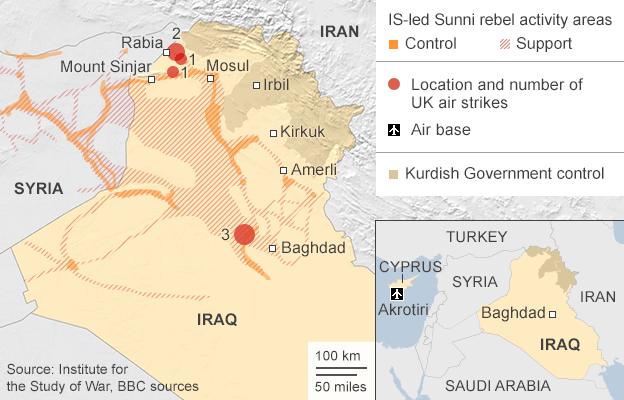
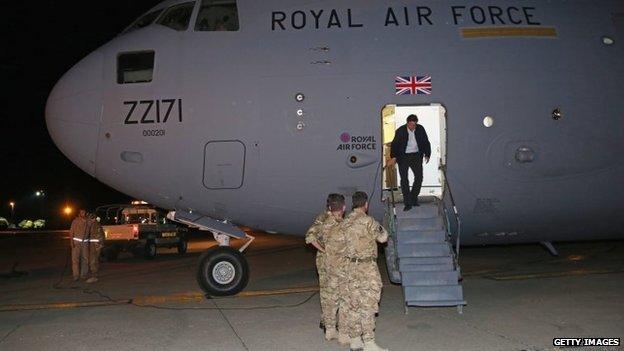
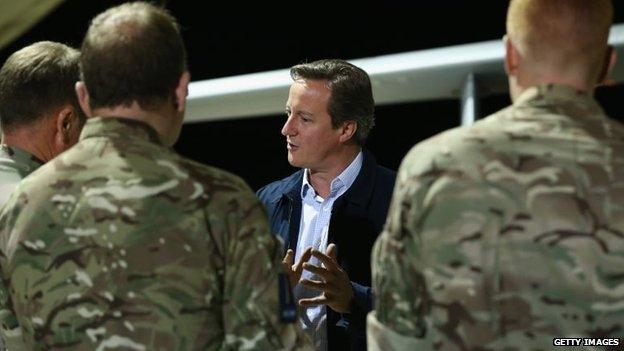
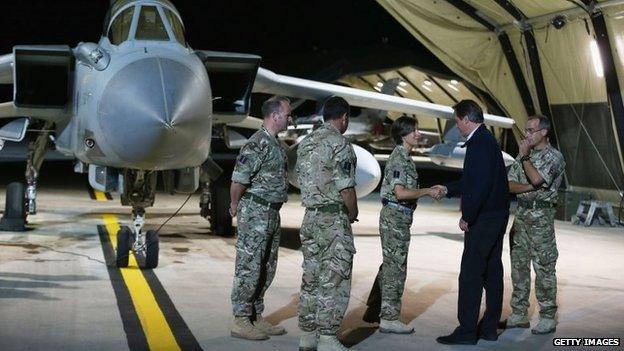
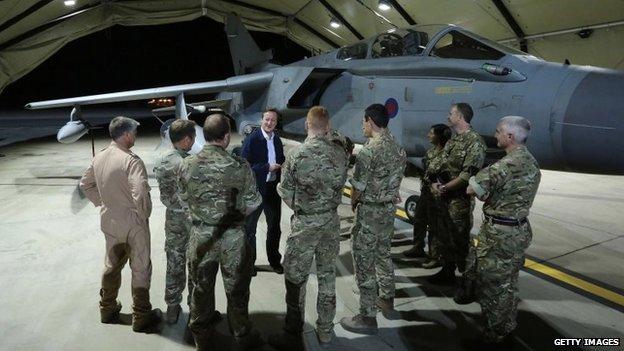
The prime minister also announced that Number II Tornado Squadron, based at RAF Marham in Norfolk, would continue to serve for another year and would not be stood down in April.
He said this was "to ensure we can sustain this effort in the months ahead".
"Obviously, these operations are just one element of our strategy. We are also working hard to deliver a training package for Iraqi forces with advisers in Iraq now to assess their needs," he added.
"But today is really about thanking our brave airmen and women. We should never forget the sacrifices they make and the risks they take to make Britain a safer home for all of us and our families."
Tornados began hitting IS targets on Tuesday, four days after Parliament authorised UK involvement in the military campaign.
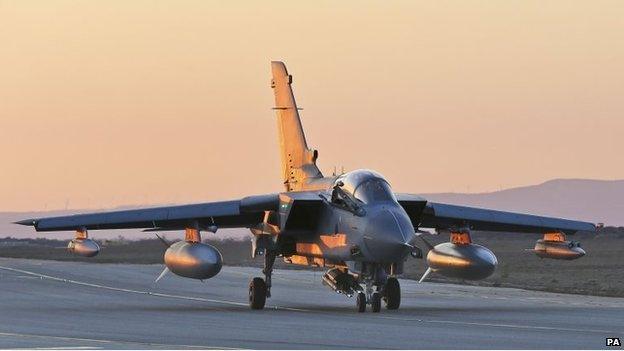
RAF Tornados have already flown a number of missions over Iraq
The aircraft have been conducting daily flights over Iraq since then, and carrying out air strikes against vehicles and weapons positions to assist Kurdish ground forces.
The UK is among about 40 nations that have joined forces to tackle the militant group, which has seized large parts of Iraq and Syria.
IS has declared a so-called caliphate in the areas it has taken, and is also holding a number of hostages.
Last month, the group released a video showing the beheading of Briton David Haines, and it has threatened that Alan Henning, another Briton, who had been delivering aid to Syria when he was captured last year, will be next.